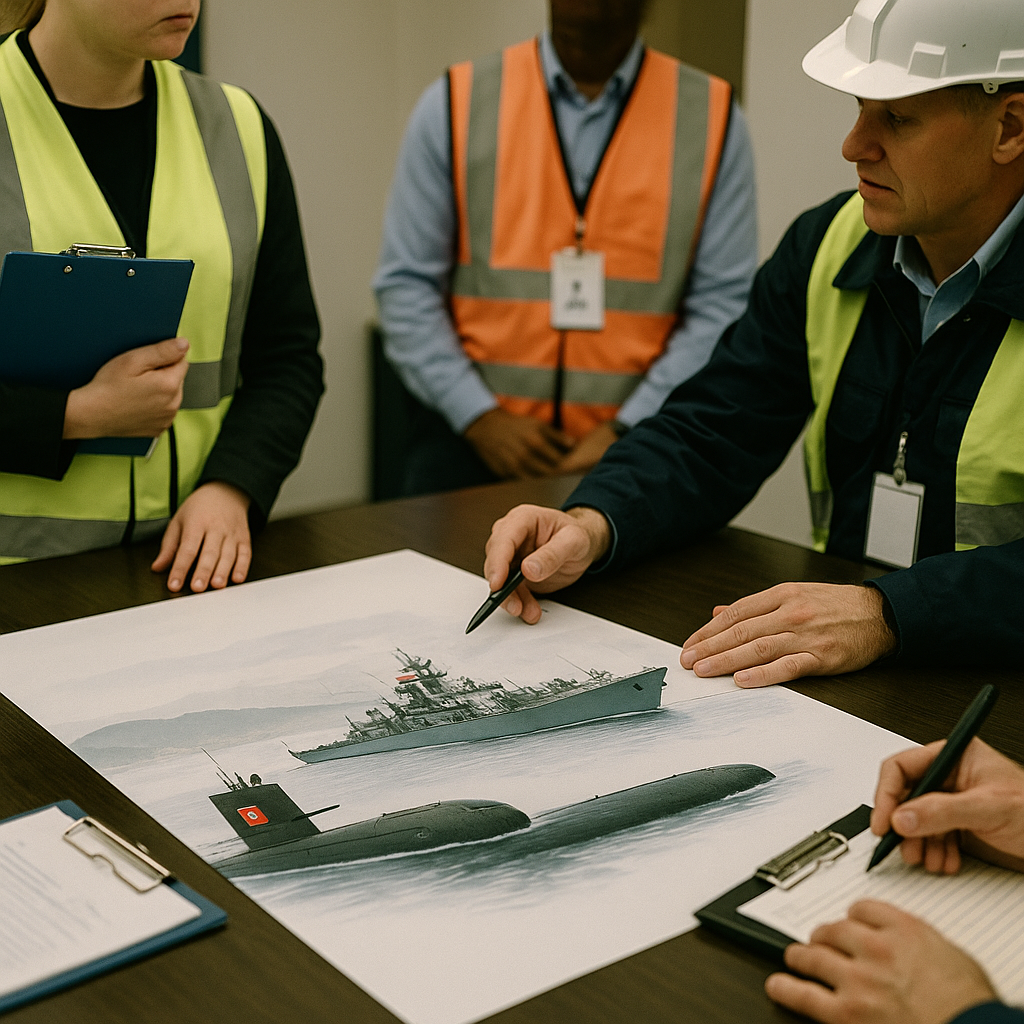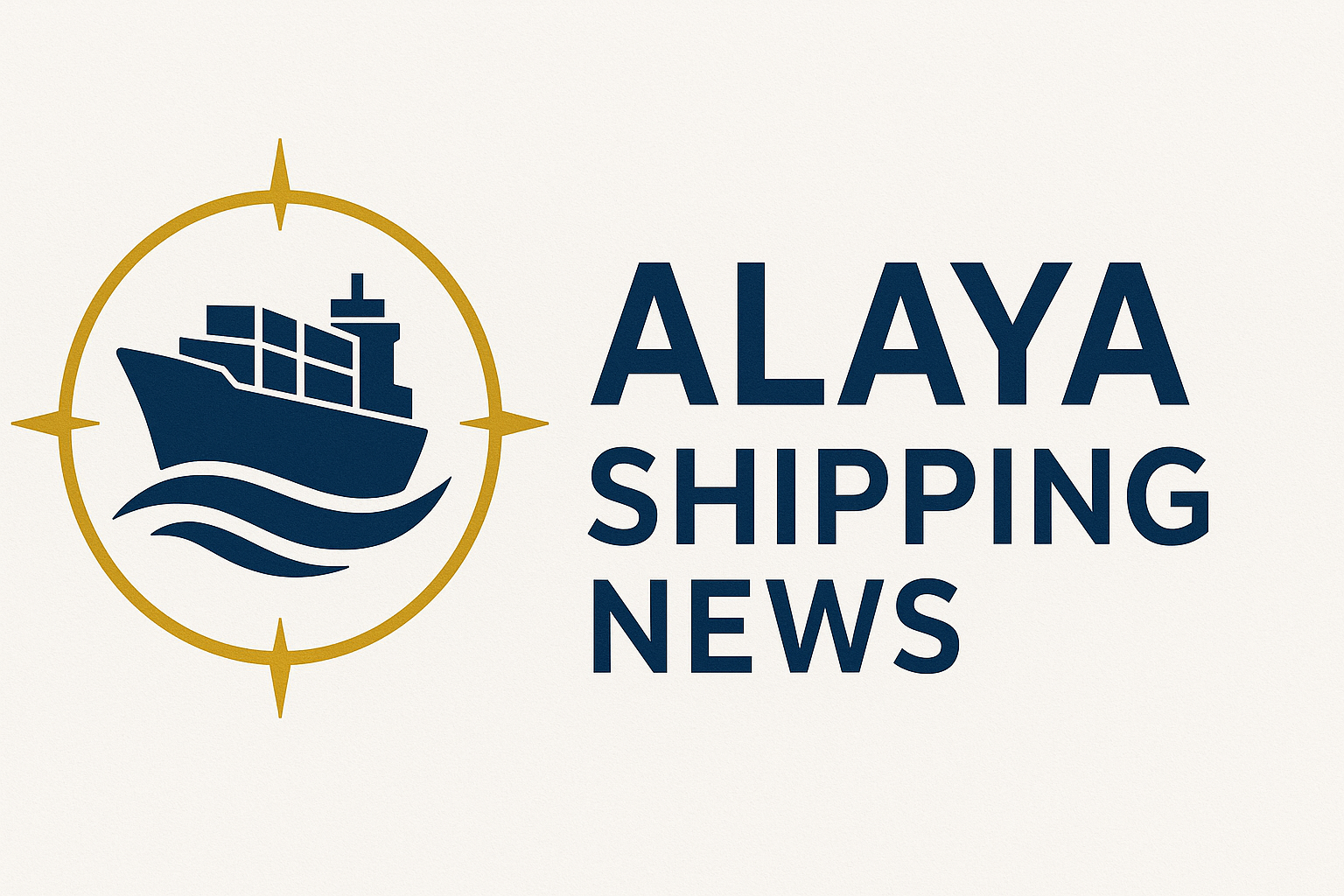
North Korea's Naval Ambitions: A New Era of Nuclearisation
In a bold move that has sent ripples through the global maritime and security communities, North Korean leader Kim Jong-un has called for the rapid nuclearisation of the country’s navy. This announcement comes amid escalating tensions on the Korean Peninsula and growing concerns over North Korea’s nuclear capabilities. According to Marine Insight, Kim’s directive underscores a strategic pivot towards enhancing North Korea’s naval power, with the potential to alter the balance of power in the region and beyond.
A Strategic Shift: Why Now?
The timing of Kim’s announcement is significant. The global geopolitical landscape is undergoing rapid changes, with increased military activities in the Asia-Pacific region. North Korea’s push for a nuclearised navy could be seen as a response to the perceived threats from neighboring countries and the United States, which has been strengthening its alliances in the region. The move also reflects North Korea’s broader strategy of using its military capabilities as a tool for diplomatic leverage.
This development is not occurring in isolation. The failure of the US Navy’s autonomous boat test off California, as reported by Marine Insight, highlights the ongoing technological race in naval capabilities. While the US struggles with technological setbacks, North Korea’s focus on nuclearisation could be an attempt to gain a strategic edge.
Building a Nuclear Fleet: Challenges and Implications
North Korea’s ambition to rapidly nuclearise its navy presents several challenges. The country will need to overcome significant technical and logistical hurdles to develop and deploy nuclear-powered submarines and other naval assets. This process requires substantial resources, expertise, and time, which may strain North Korea’s already limited economic capacity.
The implications of a nuclearised North Korean navy are profound. Such a development would not only increase the country’s deterrence capabilities but also pose a direct threat to regional stability. Neighboring countries, particularly South Korea and Japan, are likely to respond by bolstering their own military capabilities, potentially leading to an arms race in the region.
Geopolitical Ramifications and Global Reactions
The international community is closely monitoring North Korea’s naval ambitions. The potential for nuclear proliferation in the region raises significant security concerns. According to Marine Insight, the recent Russian drone strike on an oil depot at Izmail port underscores the vulnerabilities of critical infrastructure to military actions. A nuclearised North Korean navy could similarly threaten maritime trade routes and energy supplies, with far-reaching consequences for global supply chains.
The response from major powers will be crucial in shaping the outcome of North Korea’s naval nuclearisation. The United States, China, and Russia have vested interests in maintaining stability in the region. Diplomatic efforts to address North Korea’s nuclear ambitions will likely intensify, with potential implications for international treaties and regulations governing nuclear weapons.
Economic and Environmental Considerations
Beyond the immediate security concerns, North Korea’s naval nuclearisation has economic and environmental dimensions. The development of nuclear-powered vessels requires significant financial investment, which could divert resources from other critical areas of the North Korean economy. Additionally, the environmental risks associated with nuclear technology, including potential accidents and radioactive waste, pose long-term challenges.
The Panama Canal’s recent approval of a $5.2 billion budget for 2026, as reported by Marine Insight, highlights the importance of strategic maritime investments. In contrast, North Korea’s focus on military capabilities may limit its ability to engage in similar economic development projects, potentially impacting its long-term growth prospects.
Analyst Perspectives: Navigating Uncertain Waters
Analysts are divided on the potential outcomes of North Korea’s naval nuclearisation. Some view it as a strategic move to enhance the country’s bargaining power on the international stage, potentially leading to diplomatic negotiations and concessions. Others warn of the risks of escalation and miscalculation, which could lead to conflict in the region.
A bullish scenario envisions North Korea using its enhanced naval capabilities to secure a more favorable position in international negotiations, leading to a reduction in tensions and increased economic engagement. Conversely, a bearish scenario involves heightened military tensions and an arms race, with negative implications for regional stability and global trade.
Conclusion: Navigating the Future
North Korea’s call for the rapid nuclearisation of its navy marks a significant development in the country’s military strategy. The potential impact on regional security, global geopolitics, and economic stability cannot be understated. As the international community grapples with the implications of this move, the future remains uncertain. The coming months will be critical in determining whether North Korea’s naval ambitions lead to increased diplomatic engagement or further escalation of tensions. The world watches closely, hoping for a peaceful resolution to this complex and evolving situation.
Sources (selection):
- https://www.marineinsight.com/shipping-news/north-korean-leader-kim-calls-for-rapid-nuclearisation-of-navy/?utm_source=rss&utm_medium=rss&utm_campaign=north-korean-leader-kim-calls-for-rapid-nuclearisation-of-navy
- https://www.marineinsight.com/know-more/haunted-ghost-ship-the-longest-drifting-vessel-in-history/?utm_source=rss&utm_medium=rss&utm_campaign=haunted-ghost-ship-the-longest-drifting-vessel-in-history
- https://www.marineinsight.com/shipping-news/panama-canal-approves-5-2-billion-budget-for-2026-declares-rio-indio-project-public-interest/?utm_source=rss&utm_medium=rss&utm_campaign=panama-canal-approves-5-2-billion-budget-for-2026-declares-rio-indio-project-public-interest
- https://www.marineinsight.com/shipping-news/major-oil-depot-tanker-severely-damaged-after-russian-drone-strike-at-izmail-port/?utm_source=rss&utm_medium=rss&utm_campaign=major-oil-depot-tanker-severely-damaged-after-russian-drone-strike-at-izmail-port
- https://www.marineinsight.com/shipping-news/us-navys-long-awaited-autonomous-boat-test-ends-in-failure-off-california/?utm_source=rss&utm_medium=rss&utm_campaign=us-navys-long-awaited-autonomous-boat-test-ends-in-failure-off-california
